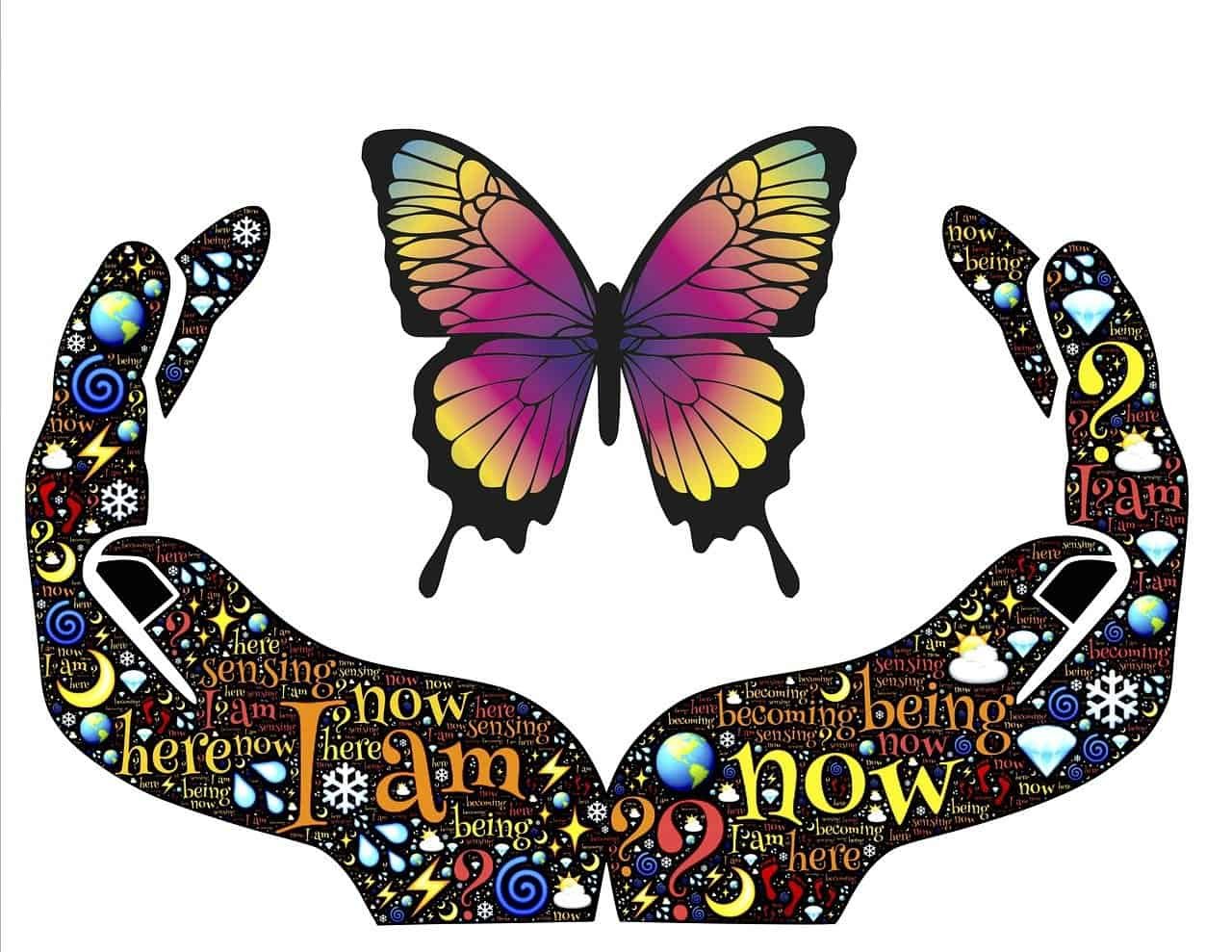The Role Of Gratitude In Emotional Well-Being
Gratitude is a powerful emotion that can have a profound impact on your emotional well-being. Research has shown that practicing gratitude can lead to numerous benefits, including improved mood, reduced stress levels, and enhanced relationships.
By cultivating a grateful mindset and incorporating gratitude into your daily life, you can experience significant improvements in your overall emotional well-being.
Numerous studies have found a strong link between gratitude and emotional well-being. When you express gratitude, whether through writing in a gratitude journal or verbally expressing appreciation to others, it activates areas of the brain associated with positive emotions. This activation leads to an increase in feelings of happiness and contentment. In fact, research has shown that individuals who regularly practice gratitude report higher levels of life satisfaction and lower levels of depression and anxiety compared to those who do not engage in regular expressions of gratitude.
In addition to boosting mood, practicing gratitude has been found to reduce stress levels. When you focus on what you are grateful for instead of dwelling on negative thoughts or stressful situations, it shifts your attention away from stressors and towards positive aspects of your life. This shift in mindset can help alleviate feelings of overwhelm and promote a sense of calmness and relaxation. Furthermore, studies have shown that individuals who regularly practice gratitude have lower levels of the stress hormone cortisol in their bodies, indicating a physiological response to the positive effects of gratitude.
Not only does practicing gratitude benefit your own emotional well-being but it also enhances your relationships with others. Expressing appreciation towards loved ones not only strengthens the bond between you but also fosters feelings of connection and belonging. Research has found that individuals who feel appreciated by their partners report higher relationship satisfaction and are more likely to engage in acts of kindness towards their partners as well.
Incorporating gratitude into your daily life doesn’t have to be complicated or time-consuming. Simple practices such as keeping a gratitude journal where you write down three things you are grateful for each day or taking a few moments to express appreciation towards others can have a significant impact on your emotional well-being. By making gratitude a regular part of your routine, you can experience the many benefits it has to offer and improve your overall emotional well-being.
In summary, gratitude plays a crucial role in enhancing emotional well-being. From boosting mood and reducing stress levels to improving relationships, practicing gratitude has numerous benefits for your mental health. By actively cultivating a grateful mindset and incorporating gratitude into your daily life, you can reap the rewards of this powerful emotion and experience greater emotional well-being overall.
Key Takeaways
- Gratitude enhances relationships by fostering empathy and understanding between partners.
- Expressing gratitude encourages reciprocation of the same feelings.
- Gratitude helps couples navigate through challenging times.
- Gratitude strengthens emotional connection and builds resilience.
The Benefits of Practicing Gratitude
Practicing gratitude brings a whole lot of joy and boosts emotional well-being! It not only has a positive impact on our mental health but also has numerous benefits for our physical health.
Research has shown that individuals who regularly express gratitude experience lower levels of stress and inflammation, leading to improved overall physical well-being. Grateful people tend to engage in healthier behaviors such as regular exercise, better sleep patterns, and following a balanced diet. By cultivating a sense of gratitude, we can enhance our physical health and improve our overall quality of life.
In addition to its influence on physical health, practicing gratitude also plays a crucial role in boosting self-esteem. When we express appreciation for the things we have or the experiences we’ve had, it helps us recognize our own worth and capabilities. Gratitude allows us to focus on the positive aspects of ourselves instead of dwelling on negative thoughts or comparing ourselves to others. This shift in perspective leads to increased self-confidence and a greater sense of self-worth.
Furthermore, research suggests that expressing gratitude not only improves our own emotional well-being but also enhances our relationships with others. People who regularly practice gratitude tend to be more empathetic towards others’ needs and are better at resolving conflicts effectively. By expressing appreciation for those around us, whether through simple acts like saying thank you or writing heartfelt notes of appreciation, we strengthen social bonds and foster deeper connections with loved ones. In turn, this creates a supportive network that contributes positively to our emotional well-being.
Incorporating gratitude into our daily lives brings an array of benefits for both physical health and emotional well-being. It promotes healthy habits while reducing stress levels and inflammation in the body. Additionally, gratitude enhances self-esteem by shifting focus towards positive aspects of oneself rather than dwelling on negativity or comparison. Lastly, expressing gratitude strengthens relationships and fosters a supportive network, creating an environment that promotes emotional well-being. So why not start practicing gratitude today and reap its many rewards?
Cultivating a Grateful Mindset
Developing a thankful mindset can enhance your overall sense of contentment and contribute to a more positive outlook on life.
One powerful way to cultivate this mindset is through gratitude journaling. By taking the time each day to reflect on what you’re grateful for, you can shift your focus towards the positive aspects of your life. This simple practice has been shown to increase feelings of happiness and well-being.
Gratitude journaling involves writing down three things you’re grateful for each day. This exercise encourages you to notice and appreciate the small joys in life that often go unnoticed. Whether it’s a beautiful sunset, a kind gesture from a loved one, or even just having shelter and food, focusing on these positive aspects can help reframe your perspective and foster gratitude.
Another area where cultivating a grateful mindset can be beneficial is in the workplace. Research has found that employees who express gratitude towards their colleagues or supervisors experience higher levels of job satisfaction and engagement. By expressing appreciation for the work of others, you not only boost their morale but also create a positive work environment where everyone feels valued and supported.
Incorporating gratitude into your daily routine through practices like journaling and expressing appreciation at work can have profound effects on your emotional well-being. So take a moment each day to reflect on what you’re grateful for, both personally and professionally. It may seem like a small act, but its impact can be significant in enhancing your overall sense of contentment and fostering positivity in all areas of your life.
Gratitude and Stress Reduction
One way to reduce stress and cultivate a grateful mindset is by incorporating gratitude practices into your daily routine, such as keeping a gratitude journal or expressing appreciation for the small wonders in life.
Research has shown that practicing gratitude can have a positive impact on mental health. Studies have found that individuals who regularly engage in gratitude exercises experience lower levels of depression and anxiety, as well as higher levels of overall well-being.
Gratitude has also been linked to increased resilience. When faced with challenging situations, individuals who practice gratitude are more likely to bounce back and maintain a positive outlook. This may be because gratitude helps shift our focus from negative thoughts and emotions towards the positive aspects of our lives. By recognizing and acknowledging what we’re grateful for, we build a sense of resilience that allows us to navigate through difficult times with greater ease.
Incorporating gratitude into your daily life doesn’t have to be complicated. It can be as simple as taking a few minutes each day to reflect on what you’re grateful for or writing down three things you appreciate before going to bed.
These small acts of gratitude can have significant benefits for your mental health and overall well-being. So why not give it a try? Start cultivating a grateful mindset today and reap the rewards of reduced stress and increased resilience.
Enhancing Relationships through Gratitude
By expressing gratitude towards our loved ones, you can deepen your connections and create a stronger bond. Gratitude plays a crucial role in improving communication within relationships. When you express appreciation for the actions and efforts of your partner, it fosters open and honest dialogue.
By acknowledging their contributions, you create an environment where both parties feel seen and valued. This leads to improved understanding and empathy between partners.
Gratitude also enhances relationships by fostering empathy. When you express gratitude towards your loved ones, it encourages them to reciprocate the same feelings. This exchange of appreciation creates a positive cycle of empathy within the relationship.
By recognizing each other’s strengths and efforts, both partners are more likely to understand and empathize with one another’s perspectives and emotions.
In addition to communication and empathy, gratitude helps couples navigate through challenging times. Expressing gratitude during difficult moments reminds both partners of the love and support they have for each other. It serves as a reminder of the positive aspects of the relationship even when faced with adversity.
By practicing gratitude regularly, couples can strengthen their emotional connection and build resilience in facing life’s challenges together.
Overall, expressing gratitude towards your loved ones has numerous benefits for enhancing relationships. It improves communication by creating an environment where both parties feel valued and understood. Gratitude also fosters empathy by encouraging a reciprocal exchange of appreciation within the relationship.
Moreover, it acts as a guiding light during tough times by reminding couples of their love and support for one another. So take a moment today to express your gratitude to those who matter most in your life – it could lead to deeper connections and a stronger bond that lasts a lifetime.
Strategies for Incorporating Gratitude into Your Daily Life
Start your day off right by incorporating gratitude into your morning routine. You can do this by writing down three things you’re thankful for while sipping on your first cup of coffee. Gratitude journaling has been shown to have numerous benefits for emotional well-being. It can improve mood, increase positive emotions, and enhance overall life satisfaction. By taking a few minutes each morning to reflect on what you’re grateful for, you can set a positive tone for the rest of your day.
To incorporate gratitude into your daily life, consider expressing gratitude to others. You can do this through simple acts such as sending a thank-you note or verbally expressing appreciation. Research suggests that expressing gratitude not only benefits the recipient but also the person expressing it. It fosters feelings of connection and strengthens relationships. So take the time to let someone know how much you appreciate them today.
Another strategy is to practice mindfulness during moments of gratitude throughout the day. As you go about your daily activities, pause and pay attention to things that bring you joy or make you feel grateful. It could be something as simple as enjoying a beautiful sunset or savoring a delicious meal. By being present in these moments and acknowledging the feelings of gratitude they evoke, you can cultivate a greater sense of overall well-being.
Lastly, consider incorporating acts of kindness into your daily routine as a way to express gratitude towards others and promote emotional well-being. Engaging in small acts of kindness not only brightens someone else’s day but also boosts your own mood and sense of fulfillment. Whether it’s offering help to a coworker or volunteering at a local charity, these acts serve as reminders of all that we have to be grateful for in our lives.
Incorporating strategies like keeping a gratitude journal, expressing thanks to others, practicing mindfulness during moments of gratitude, and performing acts of kindness can help infuse more positivity into our lives and contribute to better emotional well-being overall. So why wait? Start incorporating gratitude into your daily routine today and experience the many benefits it has to offer.
Conclusion
In conclusion, incorporating gratitude into your daily life can have a profound impact on your emotional well-being. By practicing gratitude, you can experience numerous benefits such as reduced stress levels and enhanced relationships.
Cultivating a grateful mindset allows you to shift your focus from what is lacking in your life to what you already have, leading to increased happiness and satisfaction.
One example of the power of gratitude is the case study of Sarah, a 35-year-old woman who struggled with anxiety and depression. Through therapy, she learned to practice gratitude by keeping a daily journal where she wrote down three things she was grateful for each day. Over time, Sarah noticed significant improvements in her mood and overall well-being. She found that expressing gratitude helped her reframe negative thoughts and find joy in even the smallest moments of her life.
Research has consistently shown that expressing gratitude can activate areas of the brain associated with pleasure and reward, leading to increased feelings of happiness. Additionally, studies have demonstrated a link between practicing gratitude and improved sleep quality, lower levels of inflammation in the body, and stronger immune function. These findings highlight the importance of incorporating gratitude into our lives for both our mental and physical health.
Incorporating gratitude into your daily routine doesn’t have to be complicated or time-consuming. Simple strategies such as keeping a gratitude journal or expressing appreciation towards others can make a significant difference in your overall emotional well-being.
So why not start today? Take a moment each day to reflect on what you’re grateful for, and watch as it transforms your outlook on life.








